- Home
- Simon Archer
Ultimate Mage
Ultimate Mage Read online
Ultimate Mage
Simon Archer
Contents
Chapter 1
Chapter 2
Chapter 3
Chapter 4
Chapter 5
Chapter 6
Chapter 7
Chapter 8
Chapter 9
Chapter 10
Chapter 11
Chapter 12
Chapter 13
Chapter 14
15. Viktor
Chapter 16
Chapter 17
Chapter 18
Chapter 19
Chapter 20
Chapter 21
22. Viktor
Chapter 23
Chapter 24
Chapter 25
Chapter 26
Chapter 27
Chapter 28
29. The Mountain Elf Stronghold
A Note from the Author
1
“Don’t forget to wipe down the bar.”
I jolted up at my manager’s voice, dropping my rag on the ground. I moved to pick it up and grab another, saying, “Sorry, sorry, won’t happen again.”
The manager rolled his eyes. He knew it would happen again, just like it did every night. I tended to get caught up in the music. The dingy piano bar wasn’t exactly Carnegie Hall, but music was music, after all.
After my shift, I got to play. I ran in the back and pulled out my cello, eager to get on stage. The bar wasn’t exactly known for classical music, with mostly crooners and Dave Matthews wannabes, but it was 3 am on a Tuesday, and only a couple of patrons remained in the audience. All of them were pretty drunk, and one wasn’t even awake anymore, his form sprawled across the table. I counted myself lucky to have an audience at all.
Playing at the bar when my boss let me, usually in the wee hours of the weekday mornings, was the closest I’d gotten to performing for an audience in over a year. It wasn’t much, but I’d take it.
This evening, I was playing Bach’s Prelude, the famous one everyone knows. I found this upped my chances of someone in the audience paying me any attention. When I got up on stage, I noticed a girl in the back of the room. She was cute, pretty short. Black hair and green eyes, not a combination you see too often. Unlike the others, she seemed pretty lucid for three o’clock in the morning. She was dressed pretty funny, though, like she was colorblind or something. She was wearing green sweatpants, a white denim jacket, and a bright red blouse like someone would wear to a job interview.
When I played, she disappeared along with everyone else. It was just me and the music. And, occasionally, the pain. It flickered in and out of my consciousness, a constant reminder of where I was in contrast to where I wanted to be. But it was better than not playing at all.
When I finished, the girl in the back clapped as if she’d just watched the actual New York Philharmonic instead of some washed-up bartender in the middle of Nowhere, Queens. Everyone else just kind of looked around, saw her clapping, and slapped their thighs a couple of times. Except for the sleeping guy, he was snoring. Oh well. You can’t please everyone. This was one more enthusiastic fan than I usually got.
After I packed up my cello, the girl came up to me and introduced herself.
“Hello, Leo, I’m Nadeine,” she said, holding out her hand. Weird name, I thought. “That was excellent. We should talk.”
I was taken aback. Every once in a while, one of the guys who played here got snatched up by some minor talent agent looking to bulk up his client roster, but that didn’t really happen to cellists.
I wasn’t sure what to make of this girl. She looked like she was dressed by a blind person, seemed to know who I was, and was pretty damn hot to boot. I figured this was the most interesting thing that had happened to me in a while, so I might as well talk to her. Plus, she liked my playing. Hadn’t heard that in a while.
“What about?” I asked as I shook her hand. “And how do you know my name?”
“I have a proposition for you,” she said, completely ignoring my questions. Well, mostly anyway. Still, she was already turning away and heading to a corner booth, behind the sleeping guy and out of earshot of the other customers and bar employees, and well, let’s just say that she was really hot, and what were the chances she was going to trick me and steal all my organs? Zero. Well, probably anyway.
“So,” I said as I reached the table and slid in next to her. “What’s up?”
“Well, here’s the thing, Leo.” She met my eyes. “Look, we both know your career is going nowhere fast…”
“Gee, thanks for the rousing endorsement,” I said, taken aback. “I thought you said I was good?”
“You are. Your performance was beautiful. It was the greatest thing I’ve ever heard,” she paused a beat to gesture around the room. “But if you were going somewhere, what are you doing here?”
I shifted uncomfortably in my seat. I’d started playing the cello when I was in first grade. I’d begged my parents to let me try it ever since they took me to a performance by the New York Philharmonic, where a cellist was the featured soloist. I longed to be just like him, to be able to conjure those deep, longing sounds myself. So, they got me lessons, rented me an instrument, and I never turned back after that.
Turns out, I was pretty good. I started playing in the local youth symphony in middle school, and by my sophomore year of high school, I was the cello section leader. A prolific teacher took an interest in me after seeing a concert and offered to take me on as a student. He pushed me to apply to the best music conservatories in the country, and I got into the best of the best: Julliard. That’s when things went to shit.
“I, uh, well,” I stammered. “I used to be really good. I went to the best place in the world to learn music. I just, well-- There I was just one of a sea of other child prodigies. I wasn’t special anymore. It was okay, at first, but the pressure got to me. My hands started to hurt, first my bow hand and then my other one. The pain moved to my arms. At some point, I just had to stop.”
“You cannot play through the pain?” the girl asked. She seemed to be hanging on to my every word. That might have been why I’d opened up to her, I don’t know. I didn’t like to talk about it much.
“Well, I took a semester off, had surgery, went through some physical therapy,” I continued. “But things were never the same after that. My playing didn’t get back where it should have been. I was still good, but not Julliard good. I found myself stuck in the back of the cello section for all four of my years there.”
“This position is bad?” she asked, both curious and interested, which, admittedly, wasn’t usual, but I wasn’t going to look a gift horse in the mouth. After all, how often does someone actually care about your troubles? Never.
“It’s not good,” I explained. “I mean, the guy in the back at Julliard is generally better than the first chair anywhere else, but they just felt bad for me. I wouldn’t have gotten in if I’d been injured any earlier.”
“But you stayed,” she said, eyeing the stage where I’d just been playing. “And you persevered anyway. That is an amazing quality to have.” She smiled at me. “Do you know how many people would have just quit if they were in your situation?”
“I mean, I’d do anything to keep playing, even through the pain and being in the back row.” I shrugged. “So long as I could still make music all day, I honestly didn’t care, so it wasn’t that hard for me to keep it up. The pain came and went, and I went on auditions for jobs, but I didn’t get any, not even for a regional orchestra.” I looked down at my clasped hands. Even just talking about it was making my hand hurt again.
“You do not wish to do something else?” she asked, and when I looked back up at her, I noticed she was leaning forward with her elbows on the table so
that she was really only a few inches away. There was just something in her eyes that… well, seemed to be really seeing me.
“Nah,” I said with a laugh. “I always need to be around music. I tried teaching, but I wasn’t very good at it. I got annoyed when the music my students made wasn’t enough like the music in my head. So, I found myself working here, where I can at least be around music while I prepare for another round of job auditions.”
“You’re trying again?” She looked skeptical. It hurt, but she was probably right.
“Yeah, I know,” I said. “My teachers have brought it up a couple of times, that maybe I should look into another career path. But I just can’t do anything else.”
“Which brings us to my proposal,” she said, and the look she gave me was like a cat with cream. Like she had me right where she wanted me, which, to be fair, if she was offering me a job, I was probably going to take sight unseen.
“Do you work for an orchestra?” I hedged.
“No,” she said. “I’m not from around here.”
“You don’t say,” I said, eyeing her strange clothing again.
“As I said, you won’t get to do what you love here. But I can take you somewhere you might.” She looked behind her shoulder to make sure no one was listening, then leaned in closer to me.
“I’ve tried to get jobs all over,” I repeated. “No regional orchestra will hire me with my track record, so I’m a bit confused….”
“As I said, I’m not from an orchestra,” she replied with a smirk. “I’m from a world called Eviorah.”
I blinked. “What?”
“It would be easier if I just showed you.” Her smile was in full swing now, as if daring me to ask her to show me. And the crazy thing? The really crazy thing? I wanted her to show me.
“Show me what?” I asked as casually as possible.
“Eviorah,” she said again. “Interested?”
“Is that some new subdivision in the city?” There were weird new things popping up all the time.
“No, it’s a world.” She laughed. “I can take you there.”
I pushed back my chair. “You’re just another crackpot,” I groaned. I should have known when I first laid eyes on her.
She grabbed my wrist with surprising speed and strength. “No, please, we need your help. Just let me show you. Please.” I looked into her eyes. What could it hurt? She seemed harmless. Plus, she was cute.
“Alright, alright, show me whatever you want, just no dark alleys, okay?” I said as she released her hold on me.
“Just the one outside this establishment,” she assured me. “I promise not to take you to a dark alley and have my way with you.” She winked. “Unless that’s what you want.”
“Yeah, to be honest, I’m way more worried about finding myself in a dark alley with a bunch of guys who want to rob me,” I said even though I was already following her to the door. “I’m a musician. I literally am the poorest of the poor. Like, starving artists have more to eat than me.”
“And that is all about to change,” she said as we reached the door. “Are you ready for me to rock your world?” She gestured outside.
“Wait, I need to get my cello,” I said with a jolt. I wasn’t sure where we were going or what was about to happen, but either way, I wasn’t leaving my cello in the middle of a dive bar.
“You’ll have a better one where we’re going.” She looked me over. “I promise.”
“Don’t care, I’m not leaving it.” I met her gaze. “That instrument is a part of me.” I smiled at her. “We’ve been through a lot together. Plus, it was damn expensive.”
“I thought you said you were poor?” The girl said with a laugh, then shrugged. “You may go.” She shooed me away.
“I’ll be back in a jiffy,” I said as I spun on my heel to collect my instrument.
“You’d better because if you try to slip out the back, I will find you, and then I will drag you back to Eviorah kicking and screaming if I have to.” There was no hint of a joke in her voice. “Believe me.”
“I do,” I replied as a shiver ran through me. So, yeah, as I gathered up my cello, this was pretty much where I realized I was too stupid to live. Like, I should have run kicking and screaming the other way, but at the same time? Well, at the same time, no one had taken an interest in me, musically or otherwise, for a long time, and I guess I craved attention. Even if it was from a strangely dressed girl who was clearly insane. Also, did I mention how pretty she was?
“You won’t be able to carry that around with you where we’re going,” she said when I returned, and maybe it was just me, but she seemed relieved I’d returned.
“I don’t suppose you’ll let me drop it at home?” I asked.
“No, the council awaits,” she said, as if that made sense.
“The what?” I asked. “Council?”
“I will show you my world first,” she said, leading me out the door, by the hand, and I couldn’t help but think it felt nice for her to hold my hand.
True to her word, the girl led us to the alley behind the bar, looked both ways to ensure no one was looking, and pulled out a small stone from her pocket. She tossed it, and a sliver of light appeared in front of them. I jumped back as the light expanded, revealing a rippling picture of a lawn in front of a large set of wooden doors. The image had a bright quality to it, in contrast to the bleakness of the bar. It wasn’t just the contrast, though. Something about it called to me. The colors seemed brighter there.
“What… what is this?” I stammered.
“It’s my world. It’s Eviorah,” she said. She held out her hand. “Come.”
I looked up and down the street. Was no one else seeing this? I didn’t see anyone. Not knowing what else to do, I took her hand and followed her through the portal.
On the other side, the girl’s world was even brighter than it had seemed from behind the bar. I turned around, staring in wonder. All around me were the vibrant greens and blues of plants and the bright sky and the shining golden architecture of the buildings all around me. They were tall and sharp, elegant, but not extravagant.
“What is this place?” I asked.
“Eviroah,” she said matter-of-factly. “Come, the council wishes to speak with you.”
She pulled me through the double doors to the building right in front of us, the one I’d seen through the portal, and led me up a winding set of stairs to a large room at the top of the tower. The castle’s interior did not disappoint, matching the exterior’s elegant design.
In the room, I was faced with a dozen figures surrounding me in a circle, all middle-aged or older, all with the same dark hair and green eyes that had drawn me to Nadeine. Right away, I noticed that their ears were pointed. I turned to face Nadeine again and saw equally pointy ears poking through her dark hair. I wondered how I’d missed that before, or if perhaps she’d hidden them somehow.
The man sitting at the center of the council spoke first. “Leo Hayden, welcome to our world. Thank you for agreeing to assist us.”
“Assist you? Who are you? What do you want from me?” I asked.
“Tell me, Leo, about music,” the man said.
“Wh-what? You want me to tell you about music?” I found myself stammering again.
“Yes, please.”
And so I told them my story. How my parents had taken me to the New York Philharmonic and gotten me cello lessons, how I’d fallen in love with the instrument, and how my career crashed and burned in a few short years. And then I told them about Bach, and Brahms, and Mozart, and even John Williams. I even described the different instruments to them and the kinds of sounds they made.
The council hung on to my every word. It was as if they had never heard music before. When I got to the part where I explained singing, they started muttering to one another. So I demonstrated, singing a few lines of the first song that came into my head. Unfortunately, that song was “Happy Birthday.” I don’t know why. Don’t ask me how my brain works.
Half the time, I have no idea myself.
My singing voice isn’t that great. I have okay pitch from years of studying music theory and playing the cello, but the quality is like sandpaper, coarse and unappealing. The council seemed to love it, though.
“If you want to hear something that’s actually good, I could play my cello,” I said, pulling the instrument halfway off my back. They seemed to like that idea, so I took it out, rosined my bow, stuck my endpin on the ground, and got to work.
The world melted away again, and I knew nothing but the music and the twinge of pain that ebbed and flowed through my arms. I played the Bach again, even though I knew based on their questions that they probably wouldn’t know the piece, anyway. Nadeine had liked it enough, and I supposed it was famous for a reason. If you had to choose one piece to introduce you to music for the first time, you could do worse. Like, I don’t know, “Happy Birthday” maybe.
I barely noticed the council’s gasps and murmurs while I played, but when I finished, the world came crashing back to me, and I registered their reactions. I suppose they must have liked it. One woman even had tears in her eyes.
“So you guys don’t have music like, at all, huh?” I asked.
“We did, long ago,” the woman whom I’d noticed crying said, “but not for most of our lives.”
“Here is our predicament, Leo,” the man at the center said, who I figured by his position and how much he’d spoken must be in charge. “Long ago, our people used to be able to manipulate the outside world using music. It gave us access to powerful magic, unlike anything you could imagine. But someone took it away from us. We’ve been without it for so long. We considered our plight a lost cause.” He closed his eyes as if in pain.

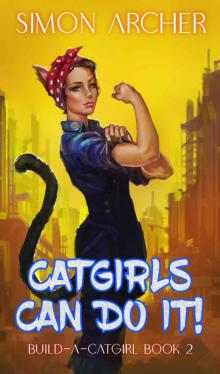 Catgirls Can Do It! (Build-A-Catgirl Book 2)
Catgirls Can Do It! (Build-A-Catgirl Book 2)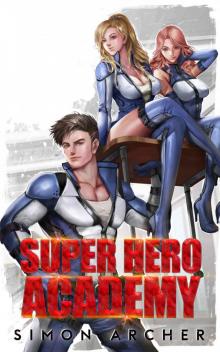 Super Hero Academy
Super Hero Academy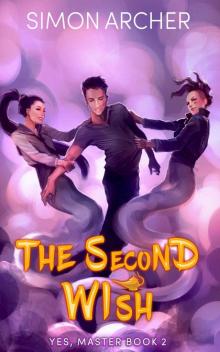 The Second Wish (Yes, Master Book 2)
The Second Wish (Yes, Master Book 2)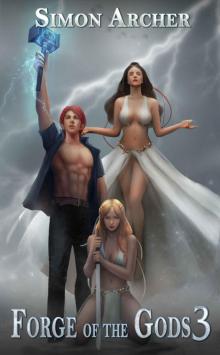 Forge of the Gods 3
Forge of the Gods 3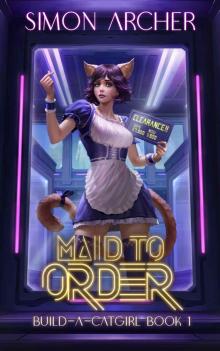 Maid to Order: A Catgirl Harem Adventure (Build-A-Catgirl Book 1)
Maid to Order: A Catgirl Harem Adventure (Build-A-Catgirl Book 1)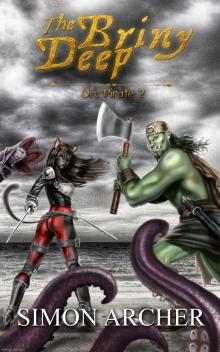 The Briny Deep
The Briny Deep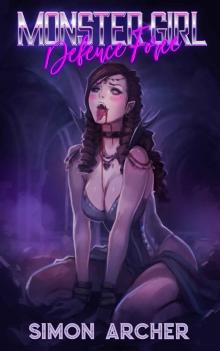 Monster Girl Defense Force
Monster Girl Defense Force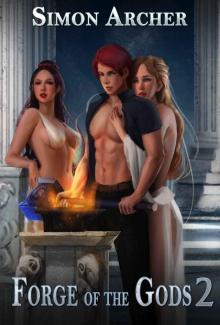 Forge of the Gods 2
Forge of the Gods 2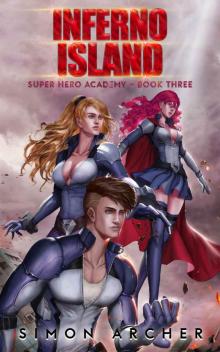 Inferno Island (Super Hero Academy Book 3)
Inferno Island (Super Hero Academy Book 3)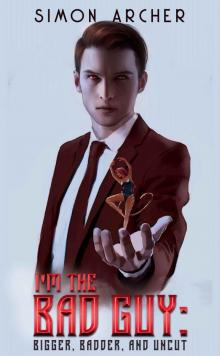 I'm the Bad Guy: Bigger, Badder, and Uncut: A Supervillain LitRPG Adventure
I'm the Bad Guy: Bigger, Badder, and Uncut: A Supervillain LitRPG Adventure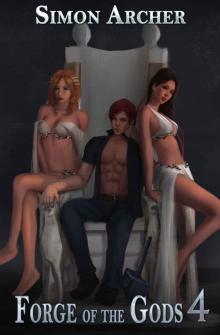 Forge of the Gods 4
Forge of the Gods 4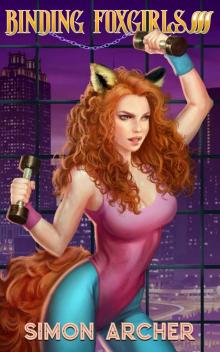 Binding Foxgirls III
Binding Foxgirls III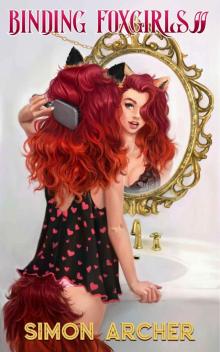 Binding Foxgirls II
Binding Foxgirls II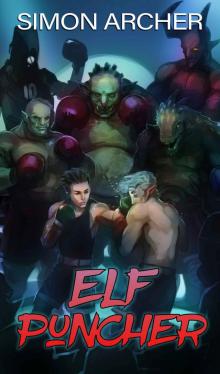 Elf Puncher
Elf Puncher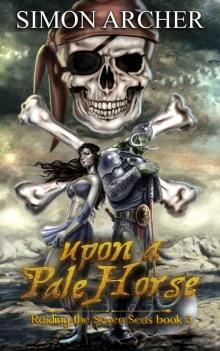 Upon a Pale Horse- Raiding the Seven Seas
Upon a Pale Horse- Raiding the Seven Seas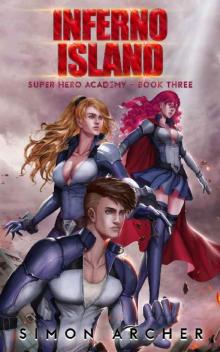 Inferno Island
Inferno Island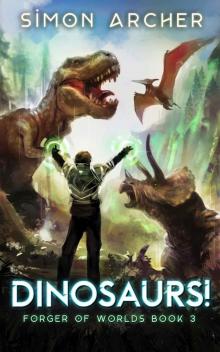 Dinosaurs! (Forger of Worlds Book 3)
Dinosaurs! (Forger of Worlds Book 3)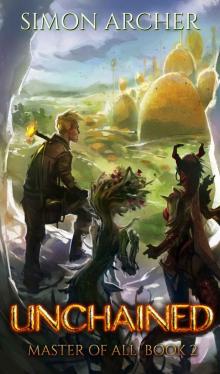 Unchained (Master of All Book 2)
Unchained (Master of All Book 2)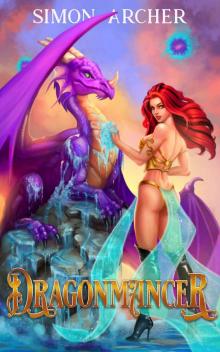 Dragonmancer
Dragonmancer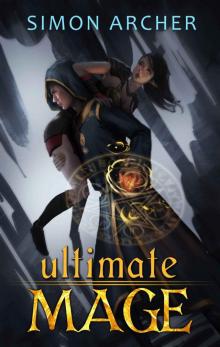 Ultimate Mage
Ultimate Mage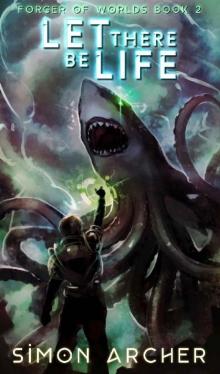 Let There Be Life
Let There Be Life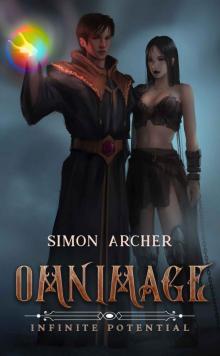 Omnimage
Omnimage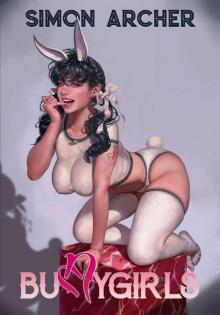 Bunnygirls
Bunnygirls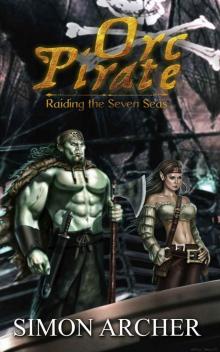 Orc Pirate: Raiding the Seven Seas
Orc Pirate: Raiding the Seven Seas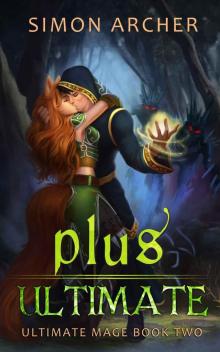 Plus Ultimate
Plus Ultimate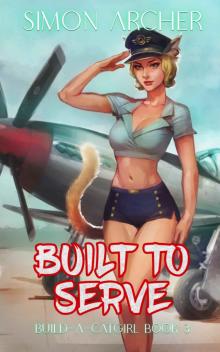 Built to Serve: A Catgirl Harem Adventure (Build-A-Catgirl Book 3)
Built to Serve: A Catgirl Harem Adventure (Build-A-Catgirl Book 3)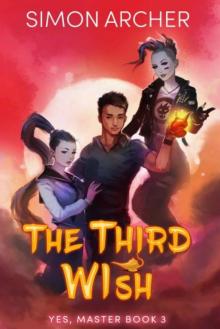 The Third Wish
The Third Wish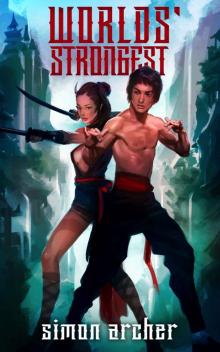 Worlds' Strongest
Worlds' Strongest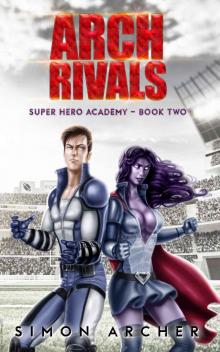 Arch Rivals (Super Hero Academy Book 2)
Arch Rivals (Super Hero Academy Book 2)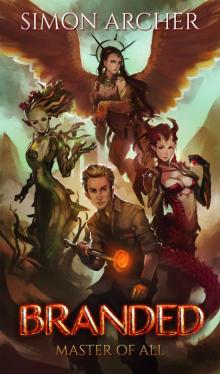 Branded (Master of All Book 1)
Branded (Master of All Book 1)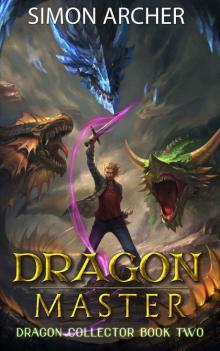 Dragon Master (Dragon Collector Book 2)
Dragon Master (Dragon Collector Book 2)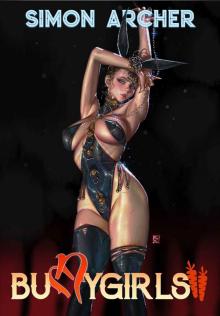 Bunnygirls 2
Bunnygirls 2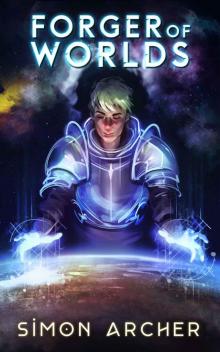 Forger of Worlds
Forger of Worlds